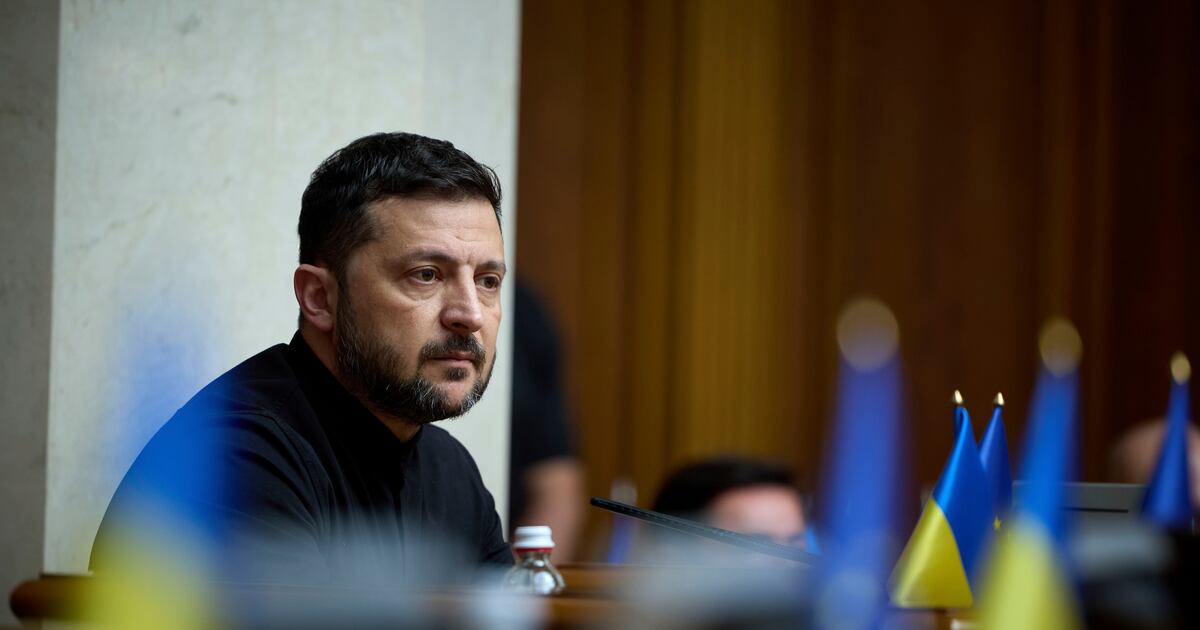World
Ukraine Welcomes New EU Sanctions on Russia Amid Tensions with Neighbors

Ukraine has expressed approval over the European Union’s recent decision to implement additional sanctions against Russia. On March 15, 2024, the EU’s 18th sanctions package was approved, significantly targeting Russia’s finance and energy sectors. This package introduces a price cap on Russian oil exports and blacklists 105 tankers linked to the Kremlin’s efforts to circumvent existing sanctions.
EU foreign policy chief Kaja Kallas emphasized the importance of these measures, stating, “We are putting more pressure on Russia’s military industry, Chinese banks that enable sanctions evasion, and blocking tech exports used in drones.” She added that the EU aims to increase the costs for Russia, hoping to make aggression an untenable path for Moscow.
Ukrainian President Volodymyr Zelenskiy praised the sanctions as “essential and timely.” He noted that they are a direct response to Russia’s recent escalation of attacks on Ukrainian cities and villages. Despite this, the passage of the sanctions faced hurdles, particularly from Slovak Prime Minister Robert Fico, who threatened to veto the package due to concerns over a separate EU initiative to phase out all imports of Russian gas by 2028.
Fico had previously blocked the sanctions package six times, expressing fears it could leave Slovakia vulnerable to energy shortages and rising costs. However, he ultimately allowed the sanctions to proceed after receiving assurances from the European Commission regarding potential “crisis solutions” for his country.
Tensions have also arisen between Ukraine and Hungary, another neighbor hesitant to sever ties with Russia. Fico and Hungarian Prime Minister Viktor Orbán have frequently attempted to dilute EU sanctions, arguing they harm their economies more than they do Russia’s. Orbán’s government has escalated its rhetoric against Ukraine, claiming that the country’s defensive efforts and EU aspirations pose risks to the well-being of ethnic Hungarians living in western Ukraine.
This week, Hungary imposed entry bans on three Ukrainian military officials, accusing them of involvement in a violent incident that resulted in the death of an ethnic Hungarian. Ukrainian officials have vehemently denied these claims. Kyiv’s Foreign Minister Andrii Sybiha called the Hungarian government’s actions “unfounded and absurd,” emphasizing their rejection of what he labeled as manipulations.
As Hungary approaches parliamentary elections next year, Orbán’s government may intensify its anti-Ukraine stance. Recent opinion polls indicate that he is trailing behind opposition leader Péter Magyar, leading to claims that Magyar would be a “puppet” of liberal forces in Brussels and Kyiv.
In response to the EU’s new sanctions, former Russian President Dmitry Medvedev, currently serving as deputy chairman of Russia’s security council, criticized the measures as ineffective. He stated that “strikes against targets in so-called Ukraine, including Kyiv, will only intensify,” while urging Russians to adopt a mindset of hatred toward Europeans.
With the geopolitical landscape continuously evolving, the recent EU sanctions highlight the ongoing complexities faced by Ukraine and its relationships with neighboring countries, particularly as tensions with Russia remain high.
-

 Top Stories3 months ago
Top Stories3 months agoTributes Surge for 9-Year-Old Leon Briody After Cancer Battle
-

 Entertainment4 months ago
Entertainment4 months agoAimee Osbourne Joins Family for Emotional Tribute to Ozzy
-

 Politics4 months ago
Politics4 months agoDanny Healy-Rae Considers Complaint After Altercation with Garda
-

 Top Stories4 months ago
Top Stories4 months agoIreland Enjoys Summer Heat as Hurricane Erin Approaches Atlantic
-

 World5 months ago
World5 months agoHawaii Commemorates 80 Years Since Hiroshima Bombing with Ceremony
-

 Top Stories3 months ago
Top Stories3 months agoNewcastle West Woman Patricia Foley Found Safe After Urgent Search
-

 Top Stories5 months ago
Top Stories5 months agoFianna Fáil TDs Urgently Consider Maire Geoghegan-Quinn for Presidency
-

 World5 months ago
World5 months agoCouple Convicted of Murdering Two-Year-Old Grandson in Wales
-

 World5 months ago
World5 months agoGaza Aid Distribution Tragedy: 20 Killed Amid Ongoing Violence
-

 World5 months ago
World5 months agoAristocrat Constance Marten and Partner Convicted of Infant Murder
-

 Top Stories4 months ago
Top Stories4 months agoClimbing Errigal: A Must-Do Summer Adventure in Donegal
-

 Top Stories4 months ago
Top Stories4 months agoHike Donegal’s Errigal Mountain NOW for Unforgettable Summer Views









